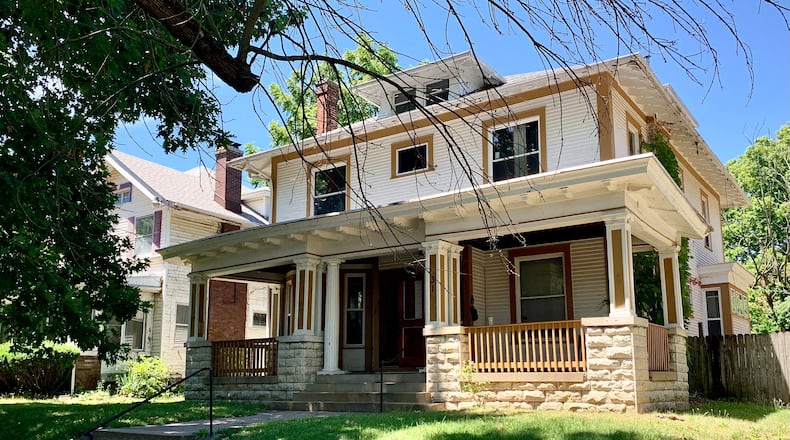The city is considering prohibiting group homes from being close to each other, and it may require facility inspections and forbid them from being near blighted properties.
“Montgomery County approximately has 15 times more (foster care) group homes (per capita) than Cuyahoga County,” said Kyrsten French, Dayton’s zoning administrator.
Group homes are residential dwellings where occupants receive care and supervision, city staff said. Some group homes serve kids in foster care and the juvenile justice system, while others serve adults with disabilities and people recovering from substance abuse issues.
Since 2000, Dayton has received zoning applications for 97 foster care group homes; 21 recovery group homes; 20 supportive living group homes; and 41 unknown types of group homes that may fall into the other categories, according to city data. There may be other group homes that are operating without zoning approval.
Just because someone applied for zoning approval does not mean that the group home projects moved forward.
City officials said new regulatory oversight hopefully will better help integrate group home facilities into local neighborhoods.
The city wants to classify group homes as “community residences” and has proposed new definitions and standards for three types of facilities (foster care, recovery and supportive living).
Group homes have caused problems that have led to community complaints and strained local resources. For instance, Dayton police responded to nearly 3,000 calls for service at foster group homes in the city in 2023.
Dayton and Montgomery County by far have the most foster group homes in Ohio.
Last year the state had about 235 group homes licensed by the Ohio Department of Children & Youth, and 80 of those were in Montgomery County (34%).
Possible regulations
Dayton is contemplating new restrictions on group home locations. The city is considering spacing requirements to try to prevent clustering and oversaturation.
Parts of West Dayton already have high concentrations of foster group homes. City officials have talked about creating a minimum distance of 1,000 feet between the facilities, but that could change.
There has been some discussion about whether new spacing restrictions could or should apply to foster care homes or all three types of community residences. One concern, for example, is that individuals with disabilities are a protected class, and they have fair housing protections.
The city also is considering requiring interior and exterior property inspections of group home facilities.
French, the zoning administrator, said most proposed group homes are “very average,” meaning they are clean, safe and have decent conditions.
But she said unfortunately roughly a quarter of group homes in the city are in bad shape. She said some have “shocking” exterior issues, and some homes are surrounded by vacant and blighted properties.
The city is contemplating prohibiting group homes — likely foster homes, and maybe the others — from being next to or close to vacant and boarded-up structures.
French said vacant and blighted properties attract illegal nuisance activities and pose fire risks. The city says the safety of group home occupants is a top priority and concern.
Dayton officials also have talked about limiting the number of people who can live in a group home and putting a cap on number of group homes that can operate in various parts of the city.
However, city code has to comply with state and federal law, including fair housing requirements.
City staff say more legal research is needed about the zoning proposals to navigate complicated rules to ensure new regulations are on solid legal footing.
“The city is currently undergoing revisions to try to strike a legal, fair and effective balance of standards that account for state law pertaining to various group home types as well as fair housing considerations,” French said.
Other potential regulations could impose requirements about the types of properties that can be foster group homes, limiting it to single-family homes.
“We are trying to provide residents of these homes with a regular feeling neighborhood because that is part of what I would say is their recovery,” said Ann Schenking, a member of the Dayton Plan Board.
Plan board members said the city should have zoning standards that try to ensure that kids and adults in group homes have a good quality of life.
The Dayton Plan Board will consider proposed changes to zoning code. The board will make a recommendation to the Dayton City Commission, which ultimately will decide whether to approve or reject code changes.
New regulations may not apply to existing group homes. They could be grandfathered in, even with nonconforming conditions.
The Dayton City Commission in August approved a 180-day moratorium on new group homes.
The measure expires on Feb. 10, but city staff are expected to ask for an extension.
About the Author





